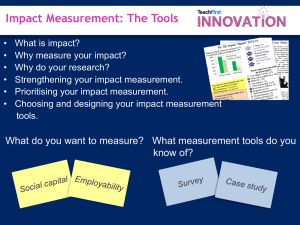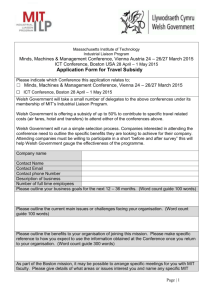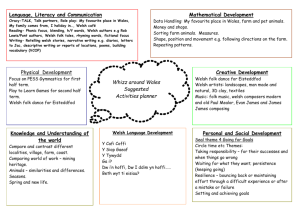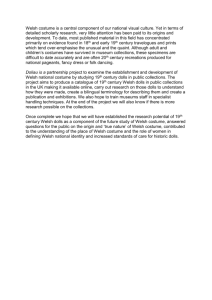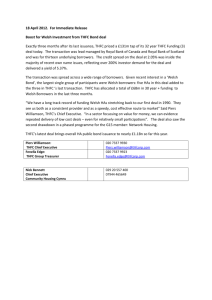Bilingualism Policy
advertisement
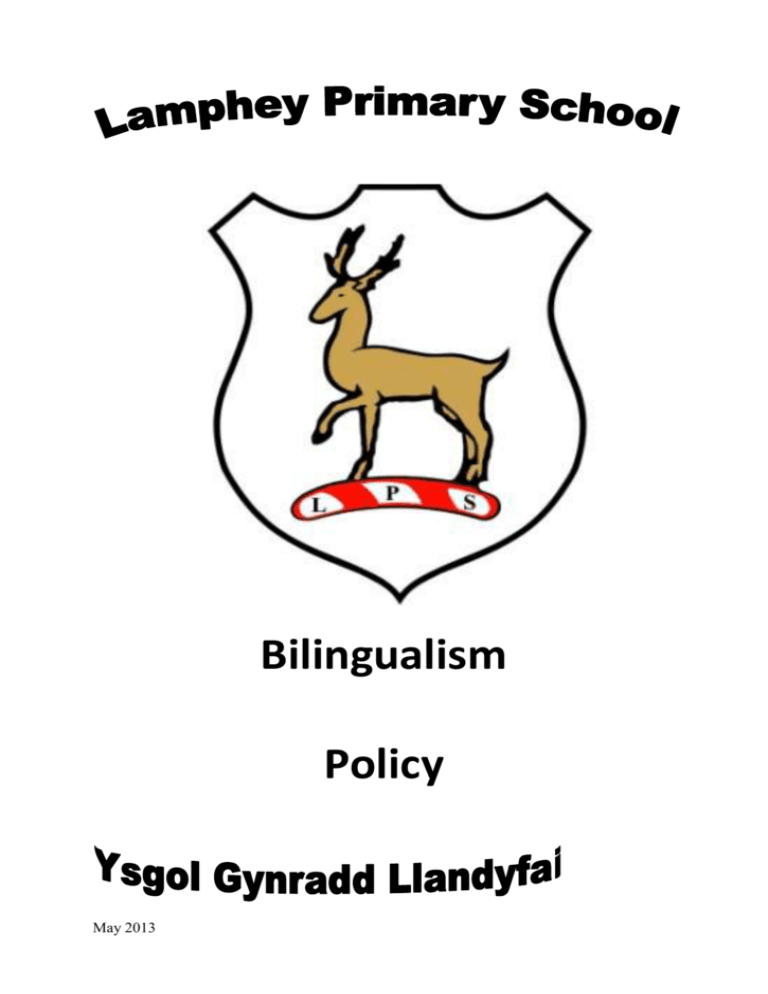
Bilingualism Policy May 2013 LAMPHEY PRIMARY SCHOOL BILINGUALISM POLICY At Lamphey Primary School we are committed to developing the bilingual experiences and skills of all our pupils. Advantages of Bilingualism Economic advantages Social and cultural advantages - being able to speak two languages can improve pupils' performance in subjects such as history, geography, social studies, creative arts and modern foreign languages. Recent research by Professor Colin Baker shows that bilingual people (where both their languages are well developed) have advantages in terms of thinking skills, and particularly so in diverse thinking and creativity. Aims and Objectives Through bilingual education we aim at Lamphey Primary School to: Develop bilingual citizens by striving to achieve high standards in both English and Welsh. To raise the status of Welsh by establishing the language as an integral part of life and work within the school. Enable pupils to strive appropriate levels in key skills including bilingual competence by developing language skills - speaking and listening, reading and writing - in both languages and across the curriculum. Nature positive and constructive attitudes towards Welsh and Welsh culture. Satisfy statutory requirements in terms of teaching Welsh and English to all pupils. School Organisation Lamphey Primary School is an English Medium (EM) school in which secondlanguage Welsh is taught as a core subject. All teachers and members of staff have a responsibility to ensure that incidental Welsh is spoken throughout the day to raise the status of the language and to nurture children's confidence and in speaking and responding to Welsh. May 2013 National Curriculum Documents form the basis for our planning for Bilingualism Class teachers are responsible for using incidental Welsh wherever possible, all teachers attend county Welsh courses; use is made of teachers’ personal expertise of the language. The school makes use of the cross-curricular potential of Welsh wherever possible exploiting opportunities for developing the Curriculum Cymreig. Efforts have been made to link Welsh to other curricular areas where appropriate. The aim is to ensure increasing levels of bilingualism across the full range of needs. As a result, a pupil with ALN will not be deprived of the opportunity to learn Welsh, unless he/she has a statement to the contrary. Work is appropriately differentiated. Bilingual booklets are provided to all staff to provide a range of ideas for developing and using incidental Welsh. Whole School Strategies Ensure that pupils make clear progress in both languages and provide continuity between Foundation Phase, Key Stage 2 and Key Stage 3. Secure opportunities across the curriculum to learn and teach Welsh and to practise their bilingual skills. Make regular use of incidental Welsh in all aspects of school life e.g. in the corridor and at registration in order to impact on children's bilingualism and nurture their confidence. Teachers to provide a good model, using Welsh language wherever possible, when talking to the children and to each other. Take advantage of pupils’ bilingual skills by comparing the characteristics of both languages e.g. vocabulary, grammar. Provide opportunities for pupils to practise their Welsh beyond the classroom, including extra-curricular and residential experiences e.g. Urdd Centre in Cardiff. Using Welsh in collective situations such as assemblies. Ensure as much signage at the school as possible is bilingual. Ensure that the Welsh language is visible in every classroom and in the school corridors. Reward children's efforts to speak in Welsh e.g. Tocyn Iaith, Ddraig. Promote pupils’ awareness of the advantages of bilingualism. Provide an adequate supply of resources to fulfil the requirements of the National Curriculum. May 2013 Ensure that Welsh forms a part of School concerts and that parents regularly see the pupils perform in Welsh, e.g. Annual School Eisteddfod. Monitoring On an annual basis the school will evaluate: Pupils' attitudes towards the Welsh language Their willingness to use bilingual skills The opportunities to develop pupils' bilingual skills Teachers' competence The quality of resources This regular monitoring will enable the school to set clear objectives within the school development plan and to share these with the school governors. May 2013
